artificialintelligence
Latest

Fan uses AI to remaster 'Star Trek: Deep Space Nine' in HD
Unfortunately, you're highly unlikely to see an official remaster of Star Trek: Deep Space Nine. Its special effects were shot on video rather than added to film, making an already daunting remastering process that much more difficult -- and since it's not a tentpole show like The Next Generation, CBS might not consider it worth the effort. Machine learning might make it easier for fans to fill the gap, however. CaptRobau has experimented with using AI Gigapixel's neural networks to upscale Deep Space Nine to 1080p. The technology is optimized for (and trained on) photos, but apparently works a treat for video. While you wouldn't mistake it for an official remaster, it provides a considerably cleaner, sharper look than the 480p original without introducing visual artifacts.
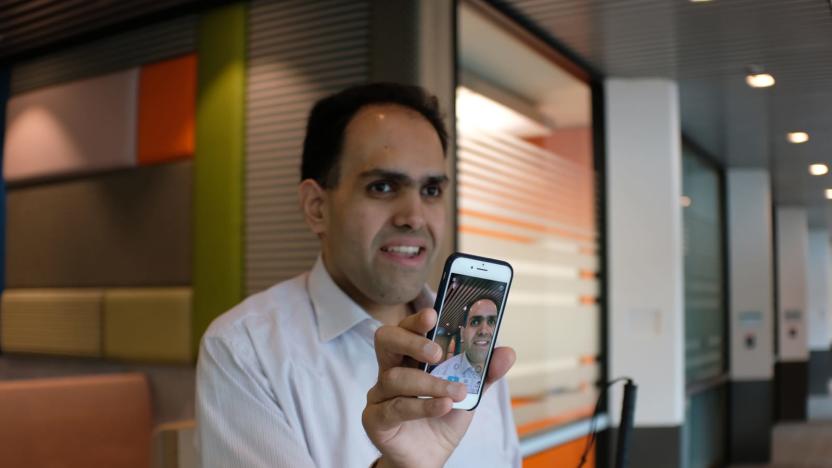
Microsoft's AI app for the blind helps you explore photos with touch
Microsoft's computer vision app for the blind and poor-sighted, Seeing AI, just became more useful for those moments when you're less interested in navigating the world than learning about what's on your phone. The company has updated the iOS app with an option to explore photos by touching them. Tap your finger on an image and you'll hear a description of both the objects in that scene as well as their spatial relationship. You can get descriptions for photos taken through Seeing AI's Scene channel, but they'll also be available for pictures in your camera roll as well as other apps (through options menus).

Palmer Luckey's firm wins Pentagon drone AI contract
Google may have backed out of the US military's Project Maven, but that doesn't mean other tech companies are unwilling to participate. The Intercept has learned that Oculus Rift co-founder Palmer Luckey's defense company, Anduril, won a contract to support the drone AI initiative in 2018. The firm will also support the Joint Artificial Intelligence Center, according to newly obtained documents. While there aren't specifics around what that contract would entail, Project Maven relies on machine learning to detect people in drone videos and provide more effective intelligence data.

Jaguar's 2020 XE uses AI to help you get comfortable
Jaguar isn't saving all its technological tricks for showcase vehicles like the I-Pace. The automaker has unveiled the 2020 XE, an entry luxury sedan that packs a surprising amount of tech. Most notably, an optional Smart Settings feature uses AI to automatically fine-tune the seating, steering column, climate control and music preferences to your tastes, using a combination of the key fob and your smartphone to determine who's who.
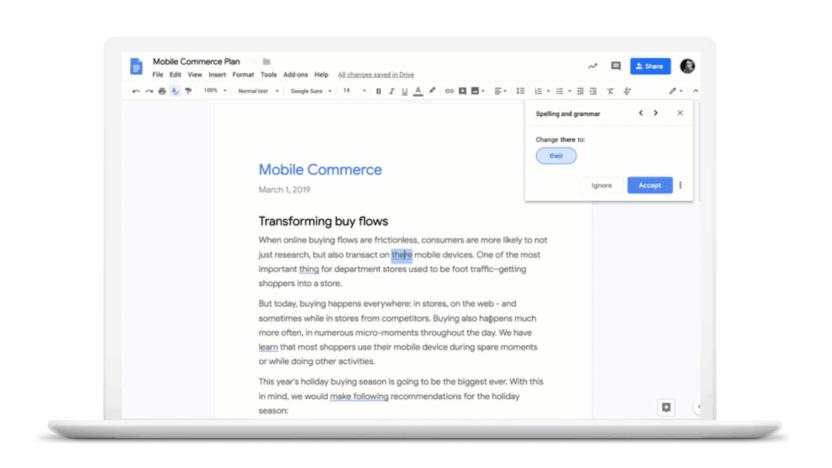
Google Docs' AI grammar checker rolls out to G Suite users
Google Docs' AI grammar suggestions are no longer limited to early adopters. The company is rolling out the machine learning tool for G Suite users, giving them an easier way to polish their reports. As Google outlined last year, this isn't a spelling checker with some grammar rules thrown in. The machine translation tech at the heart of the suggestions can detect nuances in grammar, whether it's a simple matter of word choice (like "their" versus "there") or the proper use of a subordinate clause.

Website uses AI to create infinite fake faces
You might already know that AI can put real faces in implausible scenarios, but it's now clear that it can create faces that otherwise wouldn't exist. Developer Phillip Wang has created a website, ThisPersonDoesNotExist, that uses AI to generate a seemingly infinite variety of fake but plausible-looking faces. His tool uses an NVIDIA-designed generative adversarial network (where algorithms square off against each other to improve the quality of results) to craft faces using a large catalog of photos as training material.

AICAN doesn't need human help to paint like Picasso
Artificial intelligence has exploded onto the art scene over the past few years, with everybody from artists to tech giants experimenting with the new tools that technology provides. While the generative adversarial networks (GANs) that power the likes of Google's BigGAN are capable of creating spectacularly strange images, they require a large degree of human interaction and guidance. Not so with the AICAN system developed by Professor Ahmed Elgammal and his team at Rutgers University's AI & Art Lab. It's a nearly autonomous system trained on 500 years worth of Western artistic aesthetics that produces its own interpretations of these classic styles. And now it's hosting its first solo gallery show in NYC. AICAN stands for "Artificial Intelligence Creative Adversarial Network" and while it utilizes the same adversarial network architecture as GANs, it engages them differently. Adversarial networks operate with two sets of nodes: one set generates images based on the visual training data set that it was provided while the second set judges how closely the generated image resembles the actual images from the training data. AICAN pursues different goals. "On one end, it tries to learn the aesthetics of existing works of art," Elgammal wrote in an October FastCo article. "On the other, it will be penalized if, when creating a work of its own, it too closely emulates an established style." That is, AICAN tries to create unique -- but not too unique -- art. And unlike GANs, AICAN isn't trained on a specific set of visuals -- say chihuahuas, blueberry muffins, or 20th century American Cubists. Instead, AICAN incorporates the aesthetics of western art history as it crawls through databases, absorbing examples of everything -- landscapes, portraits, abstractions, but without any focus on specific genres or subjects. If the piece was made in the Western style between the 15th and 20th centuries, AICAN will eventually analyze it. So far, the system has found more than 100,000 examples. Interestingly this learning method is an offshoot of the lab's earlier research into teaching AI to classify various historical art movements. Elgammal notes that this training style more closely mimics the methodology used by human artists. "An artist has the ability to relate to existing art and... innovate. A great artist is one who really digests art history, digests what happened before in art but generates his own artistic style," he told Engadget. "That is really what we tried to do with AICAN -- how can we look at art history and digest older art movements, learn from those aesthetics but generate things that doesn't exist in these [training] files." It can even name the art that it creates using titles of works it has already learned. To regulate the uniqueness of the generated artworks, Elgammal's team had to first quantify "uniqueness." The team relied on "the most common definition for creativity, which emphasizes the originality of the product, along with its lasting influence," Elgammal wrote in a 2015 article. The team then "showed that the problem quantifying creativity could be reduced to a variant of network centrality problems," the same class of algorithms that Google uses to show you the most relevant results for your search. Testing the quantifying system on more than 1,700 paintings, AICAN generally picked out what are widely considered masterpieces: rating Edvard Munch's The Scream and Picasso's Ladies of Avignon far higher in terms of creativity than their peer works, for example, but panned Da Vinci's Mona Lisa. The pieces that it does produce are stunningly realistic... in that most people can't tell that it wasn't made by a human artist. In 2017, Elgammal's team showed off AICAN's work at the Art Basel show. 75 percent of the attendees mistook the AI's work for a human's. One of the machine's pieces sold later that year for nearly $16,000 at auction. Despite AICAN's critical and financial successes, Elgammal believes that there is still a market for human artists, one that will greatly expand as this technology enables virtually anybody to generate similar pieces. He envisions AICAN as being a "creative partner" rather than a simply artistic tool. "It will unlock the capability for lots of people, so not only artists, it will make more people able to make art," he explained, in much the same way that Instagram's social nature revolutionized photography. He points to the Met Museum in NYC, as an example. A quick Instagram search will turn up not just images of the official collection but the visual interpretations of those works by the museum's visitors as well. "Everybody became an artist in their own way by using the camera," Elgammal said. He expects that to happen with GANs and CANs as well, once the technology becomes more commonplace. Until then, you'll be able to check out AICAN's first solo gallery show, "Faceless Portraits Transcending Time," at the HG Contemporary in New York City. This show will feature two series of images -- one surreal, the other abstract -- generated from Renaissance-era works. "For the abstract portraits, I selected images that were abstracted out of facial features yet grounded enough in familiar figures. I used titles such as portrait of a king and portrait of a queen to reflect generic conventions," Elgammal wrote in a recent post. "For the surrealist collection, I selected images that intrigue the perception and invoke questions about the subject, knowing that the inspiration and aesthetics all are solely coming from portraits and photographs of people, as well as skulls, nothing else." The show runs February 13th through March 5th, 2019. Images: Rutgers University

'Child's Play' reboot trailer suggests Chucky is now a killer robot
It's not completely impossible that robots could turn against us, so it's no surprise killer robot movies have been popular for decades. The fear is real. We could be about to add another flick to the canon, as the new trailer for the Child's Play reboot suggests. Plot details haven't been confirmed yet, so it's not totally certain this Chucky is a robot, but there's enough to back up rumors it's a defective doll "whose programming code was hacked so that he has no limitations to learning and also violence."

Salvador Dali's AI clone will welcome visitors to his museum
If you're planning a trip to the Dali Museum this spring, you might meet an unexpected guest: namely, Salvador Dali himself. The St. Petersburg, Florida venue has announced that an AI recreation of the artist will grace screens across the museum starting in April. A team from Goodby Silverstein & Partners used footage of Dali to train a machine learning system on how to mimic the artist's face, and superimposed that on an actor with a similar physique. The virtual painter will both draw on Dali's own writings as well as comment on events that happened well after his 1989 death -- it should at once be educational and as surreal as Dali's work.
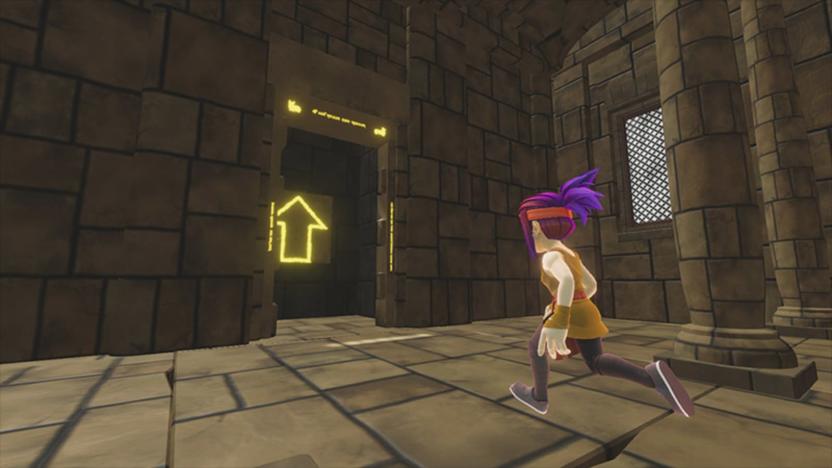
Unity created a game meant solely to test AI
Unity Technologies has a new game that you can't play. The maker of game development tools is releasing a new title called Obstacle Tower that is designed to challenge the capabilities of artificial intelligence. The release of the title is being accompanied by a contest, the Obstacle Tower Challenge, that will allow participants to run their AI agents through the 100-level challenge and compete for prizes.

Google Assistant notifications were broken on Android
Google Assistant hasn't been quite so... assistive lately. Numerous users reported that Google Assistant notifications have been broken on Android, preventing reminders and other important alerts from getting through. The problem appears to have started with updates to the Google app over the past several days, particularly the most recent (9.0.6). Some had success by uninstalling updates or clearing their app cache, but it didn't appear to have been truly fixed until a server-side update arrived on January 28th.

AI-tuned robotic knee helps amputees walk within minutes
Amputees who receive robotic limbs can't usually start using them right away. It typically requires hours of manual tweaks to adapt to their particular movement styles, and they may need to come back for more if anything changes. Soon, however, they might only need the briefest tweaks to get moving. Researchers have crafted an AI system that can tune a robotic knee (not pictured) to allow walking on level ground within 10 minutes. It uses a trial-and-error algorithm to recognize patterns in sensor data, set initial safety limits, and learn patterns that match stable, smooth walking motions.
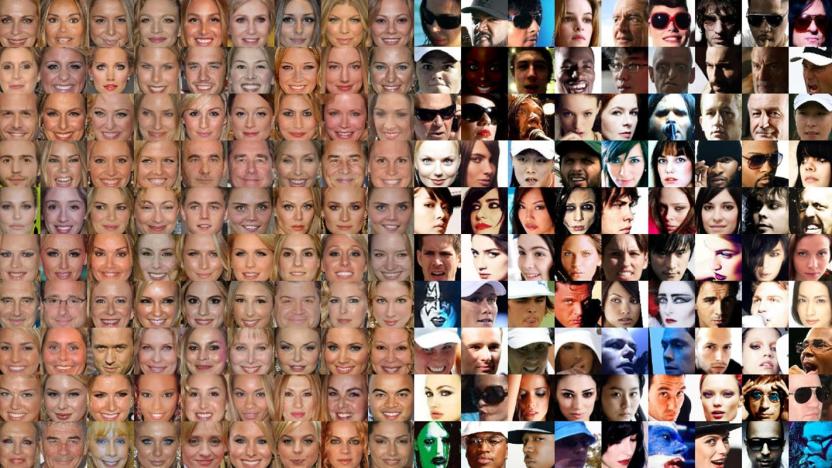
MIT hopes to automatically 'de-bias' face detection AI
There have been efforts to fight racist biases in face detection systems through better training data, but that usually involves a human manually supplying the new material. MIT's CSAIL might have a better approach. It's developing an algorithm that automatically 'de-biases' the training material for face detection AI, ensuring that it accommodates a wider range of humans. The code can scan a data set, understand the set's biases, and promptly resample it to ensure better representation for people regardless of skin color.
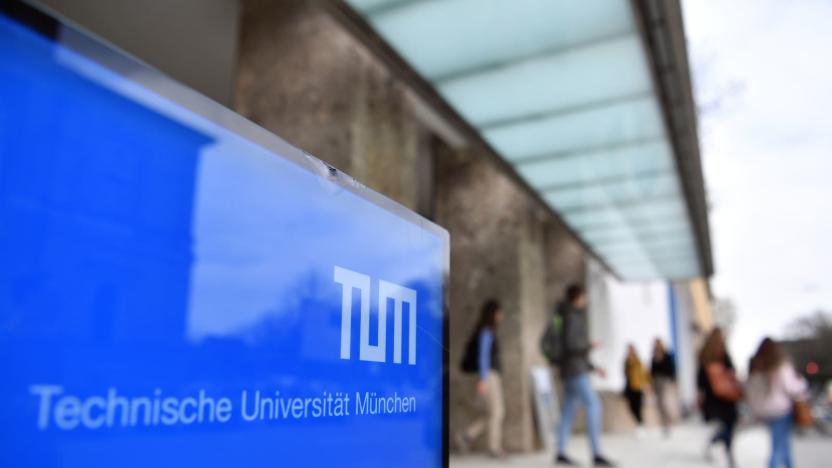
Facebook backs an independent AI ethics research center
Facebook is just as interested as its peers in fostering ethical AI. The social network has teamed up with the Technical University of Munich to back the formation of an independent AI ethics research center. The plainly titled Institute for Ethics in Artificial Intelligence will wield the university' academic resources to explore issues that "industry alone cannot answer," including those in areas like fairness, privacy, safety and transparency.

AI is better at bluffing than professional gamblers
The act of gambling on games of chance has been around for as long as the games themselves. For as long as there's been money to be made wagering on the uncertain outcomes of these events, bettors have been leveraging mathematics to give them an edge on the house. As gaming has moved from bookies and casinos into the digital realm, gamblers are beginning to use modern computing techniques, especially AI and machine learning (ML), to increase their odds of winning. But that betting blade cuts both ways, as researchers work to design artificial intelligences capable of beating professional players at their own game -- and even out-wagering sportsbooks.

Microsoft will help train LG's self-driving car software
While LG's CES presence has mainly been about TVs -- of the rollable and 8K variety -- and robots, it hasn't forgotten about the tech show's other obsession: cars. With a self-driving data collection partnership with Here maps already under its belt, not to mention its plans to import WebOS from its TVs into car dashboards, LG's latest team-up sounds like its biggest yet. The Korean company is tapping Microsoft's cash cow cloud service Azure and AI tech to grow its own autonomous driving and infotainment systems.

Sensory AI can recognize sounds in your home
Wouldn't it be great if home devices like smart speakers can ping you if they hear anything unusual, such as the sound of breaking glass? A software company called Sensory has developed an AI that can identify the sounds it hears and take action if needed. It says the technology, called TrulySecure Sound ID, is like "Shazam for sounds in the home."
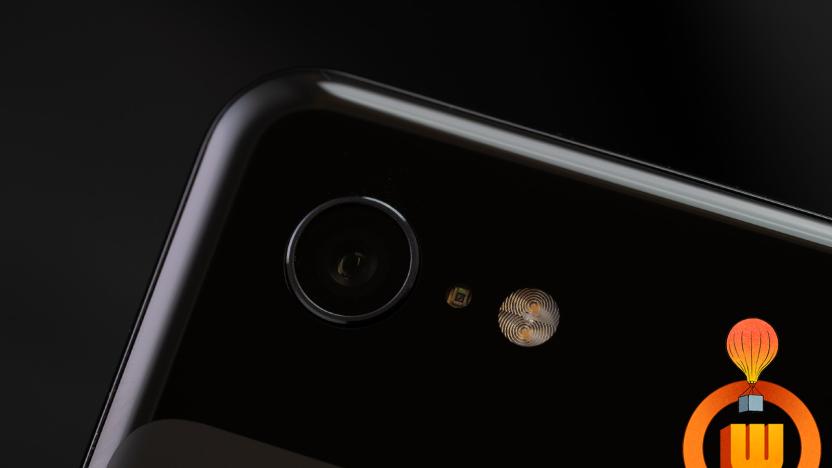
How Google software won 2018
Google is relatively new to the hardware game -- at least compared to rivals Apple and Samsung. Its latest devices have been a mix of hits and misses. The Home Hub and the Pixel phones are excellent, while the Pixelbook has become something of a cult favorite. But then you have disappointments like the Pixel Slate, Pixel C and the Clips camera, each quirky in its own way. The Pixel phones still only sport single rear cameras. And while the Slate certainly has one of the best screens in its class, that tablet has an otherwise generic design. Other than the Home Hub and Pixel phones, we've tended to score Google's devices somewhere in the 70s -- and that's true even today. Those ratings are middling at best, and terrible compared to the competition.

Google's former AI chief is now an Apple VP
Apple has added John Giannandrea to its executive team, less than a year after he left Google to join its rival. Giannandrea has been appointed as the senior vice president of Machine Learning and Artificial Intelligence Strategy, a new role that shows Cupertino is getting more serious with AI development. The new exec, who used to be Mountain View's AI and search chief, oversees the development of Siri and Apple's Core ML software that developers can use to add machine learning capabilities into their apps.
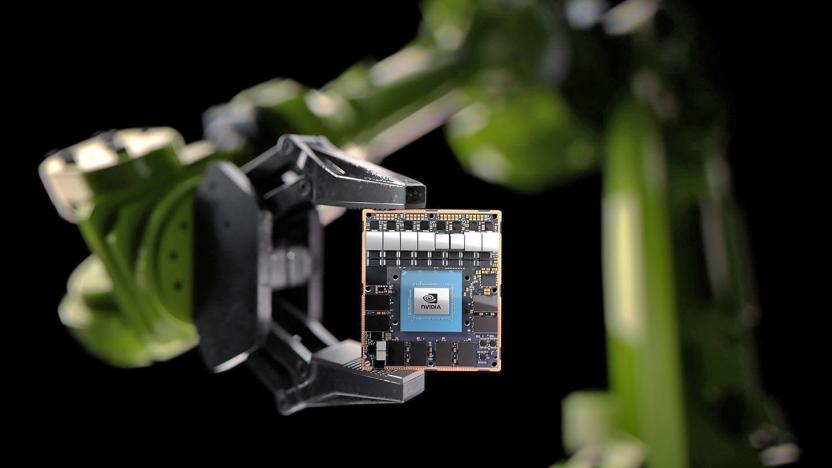
NVIDIA's $1,100 AI brain for robots goes on sale
NVIDIA's plan to power autonomous robots has kicked off in earnest. The company has released a Jetson AGX Xavier Module that gives robots and other intelligent machines the processing oomph they need for their AI 'brains.' You're not about to buy one yourself -- it costs $1,099 each in batches of 1,000 units. However, it could be important for delivery robots and other automatons that need a lot of specialized performance with relatively little power use.






